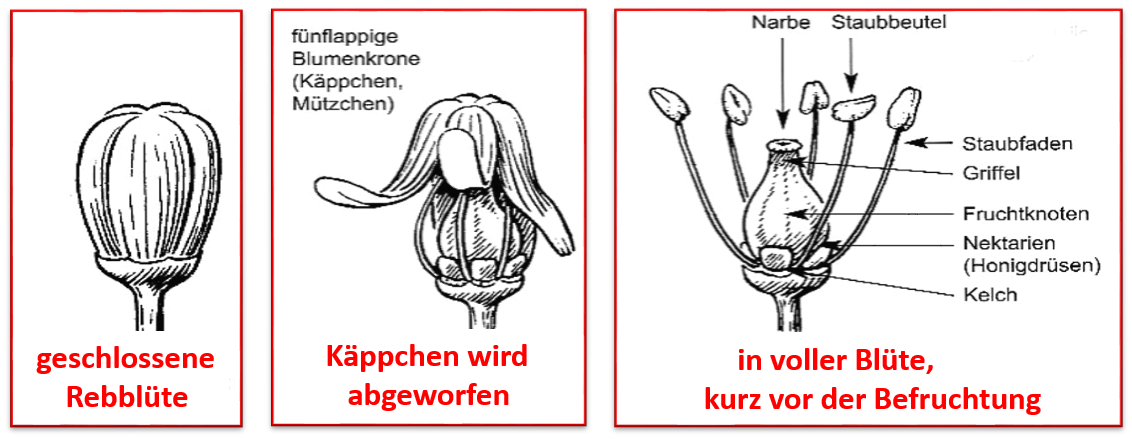Name (German: Nachbarbefruchtung) for the pollination and subsequent fertilisation between two flowers of the same plant; see at self-pollination.
self-pollination
Term for the self-pollination of a plant with its own pollen during flowering, which subsequently leads to self-fertilisation (the two terms are often used interchangeably as synonyms). The cultivated vine usually has hermaphrodite flowers. The male and female organs are united in one flower bud. This fact is the main reason why cultivated vines are largely self-fertilised. The process within the hermaphrodite flower (autogamous) or between two flowers of the same clusters (later grapes) is called self-fertilisation in the narrower sense. Between flowers of two shoots of a vine, this is called self-fertilisation in a broader sense (geitonogamous). Around 99% of cultivated vines are hermaphrodite plants. Here the plant is not at all dependent on external help (wind, bees). The hermaphrodite flowers have an extremely high degree of self-fertilisation of around 98%.

Cross-fertilisation
A new variety with a fundamentally different genetic composition is most likely to emerge if...
Voices of our members

The Wine lexicon helps me to keep up to date and refresh my knowledge. Thank you for this Lexicon that will never end in terms of topicality! That's what makes it so exciting to come back often.
Thorsten Rahn
Restaurantleiter, Sommelier, Weindozent und Autor; Dresden